
A po' boy is a sandwich originally from Louisiana. It traditionally consists of meat, which is usually roast beef, chicken fingers, or fried seafood such as shrimp, crawfish, fish, oysters, or crab. The meat is served on New Orleans French bread, known for its crisp crust and fluffy center.

Maxwell Street is an east–west street in Chicago, Illinois, that intersects with Halsted Street just south of Roosevelt Road. It runs at 1330 South in the numbering system running from 500 West to 1126 West. The Maxwell Street neighborhood is considered part of the Near West Side and is one of the city's oldest residential districts. It is notable as the location of the celebrated Maxwell Street Market and the birthplace of Chicago blues and the "Maxwell Street Polish", a sausage sandwich. A large portion of the area is now part of the campus of the University of Illinois at Chicago (UIC) and a private housing development sponsored by the university.

Louisiana Creoles are a Louisiana French ethnic group descended from the inhabitants of colonial Louisiana before it became a part of the United States during the period of both French and Spanish rule. They share cultural ties such as the traditional use of the French, Spanish, and Creole languages and predominant practice of Catholicism. Some mistakenly think the term is a racial designation, while in fact people of European, of African, and of mixed ancestry have all been termed "Creole" since the 18th century.

Clementine Hunter was a self-taught Black folk artist from the Cane River region of Louisiana, who lived and worked on Melrose Plantation.

Margaret Haughery (1813–1882) was a philanthropist known as "the mother of the orphans". Margaret Gaffney Haughery was a beloved historical figure in New Orleans, Louisiana the 1880s. Widely known as "Our Margaret," “The Bread Woman of New Orleans" and "Mother of Orphans," Margaret devoted her life's work to the care and feeding of the poor and hungry, and to fund and build orphanages throughout the city.
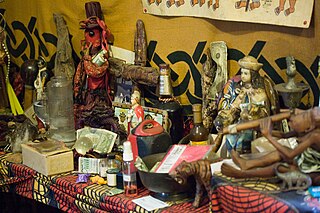
Louisiana Voodoo, also known as New Orleans Voodoo, is an African diasporic religion that originated in Louisiana. It arose through a process of syncretism between the traditional religions of West Africa, the Roman Catholic form of Christianity, and Haitian Vodou. No central authority is in control of Louisiana Voodoo, which is organized through autonomous groups.
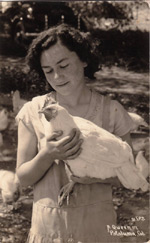
A Home on the Range: The Jewish Chicken Ranchers of Petaluma is a 2002 documentary by Bonnie Burt and Judith Montell about a group of Jews who fled pogroms in Eastern Europe and into prejudice in America. The group then organised a socialist society in the rural Northern California town of Petaluma and raised chickens to support themselves.

Louisiana is a South Central U.S. state, with a 2020 U.S. census resident population of 4,657,757, and apportioned population of 4,661,468. Much of the state's population is concentrated in southern Louisiana in the Greater New Orleans, Florida Parishes, and Acadiana regions, with the remainder in North and Central Louisiana's major metropolitan areas. The center of population of Louisiana is located in Pointe Coupee Parish, in the city of New Roads.

Adio Kerida: Goodbye my Dear Love is a 2002 documentary by American anthropologist Ruth Behar that follows her trip to Cuba, which her family left when she was four. She searches for memories from her past and investigates the dwindling Sephardic Jewish community that remains, estimated at less than 800 in 2011.

Aviva Kempner is a German-born American filmmaker. Her documentaries investigate non-stereotypical images of Jews in history and focus on the untold stories of Jewish people. She is most well known for The Life and Times of Hank Greenberg.

Island of Roses: The Jews of Rhodes in Los Angeles is a 1995 documentary about the dying Sephardic community in Los Angeles. The film shares interviews with some of the last surviving immigrants, who offer nostalgic memories of their lost home, and explores how the once vibrant community of Rhodes Jews in Los Angeles now struggles to preserve its traditions as younger, assimilated generations have to make a conscious effort to maintain the practices of their ancestors.

Faubourg Tremé: The Untold Story of Black New Orleans, is a 2008 documentary film directed by Dawn Logsdon and written by Lolis Eric Elie. Featuring a cast of local musicians, artists and writers, the film relates the history of New Orleans' Tremé neighborhood.
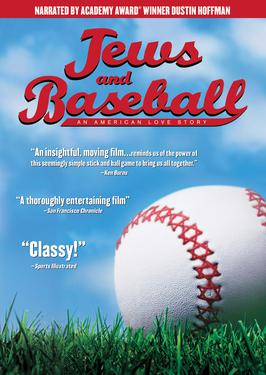
Jews and Baseball: An American Love Story is a 2010 American documentary film narrated by Academy Award winner Dustin Hoffman, written by Pulitzer Prize winner Ira Berkow, and directed by award-winning documentary filmmaker Peter Miller. It is about the connection and history between American Jews and baseball.
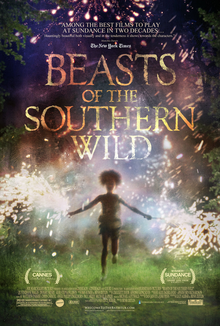
Beasts of the Southern Wild is a 2012 American fantasy-drama film directed, co-written, and co-scored by Benh Zeitlin. It was adapted by Zeitlin and Lucy Alibar from Alibar's one-act play Juicy and Delicious. The film stars Quvenzhané Wallis and Dwight Henry. After playing at film festivals, its limited theatrical release began in New York and Los Angeles on June 27, 2012, before expanding to additional markets.

When Jews Were Funny is a 2013 Canadian documentary comedy film, directed by Alan Zweig. It was produced by Jesse Ikeman and Jeff Glickman for Sudden Storm Entertainment. The film features two dozen interviews with a variety of Jewish comedy professionals in North America and explores the role of Jewish humour in the context of North American comedy. The filmmaker asks whether earlier generations of Jews were funnier than the present generation and, if so, why. The film becomes more personal as its focus shifts to the filmmaker's desire to reconnect with a culture that has changed.
David J. Dennis is a civil rights activist whose involvement began in the early 1960s. Dennis grew up in the segregated area of Omega, Louisiana. He worked as co-director of the Council of Federated Organizations (COFO), as director of Mississippi's Congress of Racial Equality (CORE), and as one of the organizers of the Mississippi Freedom Summer of 1964. Dennis worked closely with both Bob Moses and Medgar Evers as well as with members of SNCC, the Student Nonviolent Coordinating Committee. His first involvement in the Civil Rights Movement was at a Woolworth sit-in organized by CORE and he went on to become a Freedom Rider in 1961. Since 1989, Dennis has put his activism toward the Algebra Project, a nonprofit organization run by Bob Moses that aims to improve mathematics education for minority children. Dennis also speaks publicly about his experiences in the movement through an organization called Dave Dennis Connections.
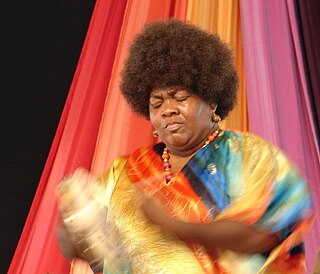
Rosalie Marie Ashton-Washington, known as Lady Tambourine, is an American gospel musician from Louisiana, known for her skill at the tambourine.
The Monsanto family is a historical Sephardic Jewish merchant and banking business who played a significant role in founding the Jewish community in Colonial Louisiana in the 18th century. They had originated in the Iberian Peninsula but moved to Amsterdam and spread out through the Dutch Empire and to the Americas at Curaçao. The family arrived in Louisiana in the 1760s, and one of their members, Isaac Monsanto, was one of the wealthiest merchants in New Orleans. The family engaged in the Atlantic slave trade and owned African slaves at their plantations at Natchez, Mississippi and Trianon, New Orleans. Not including their former estate in New Orleans, by the 1780s, the Monsantos kept 51 slaves for their personal use and sold other enslaved African people to Louisiana plantations.

Make It Funky! is a 2005 American documentary film directed, written and co-produced by Michael Murphy. Subtitled in the original version as "It all began in New Orleans", the film presents a history of New Orleans music and its influence on rhythm and blues, rock and roll, funk and jazz. The film was scheduled for theatrical release in September 2005, but was pulled by distributor Sony Pictures Releasing so that they did not appear to take commercial advantage of the devastation caused by Hurricane Katrina.

Kevin J. McCaffrey is an American filmmaker, writer, editor, and oral historian based in New Orleans. His documentary and archivist work primarily focuses on Louisiana history and culture, with an emphasis on the region's culinary history and environmental issues. McCaffrey's work has received both national and regional recognition. He has worked with a number of notable organizations dedicated to preserving the history and culture of Louisiana and New Orleans, including New Orleans Jazz & Heritage Foundation, Louisiana State Museum, Historic New Orleans Collection, WYES-TV, Loyola's Center for Environmental Communication, and the Louisiana Folklife Commission.


















